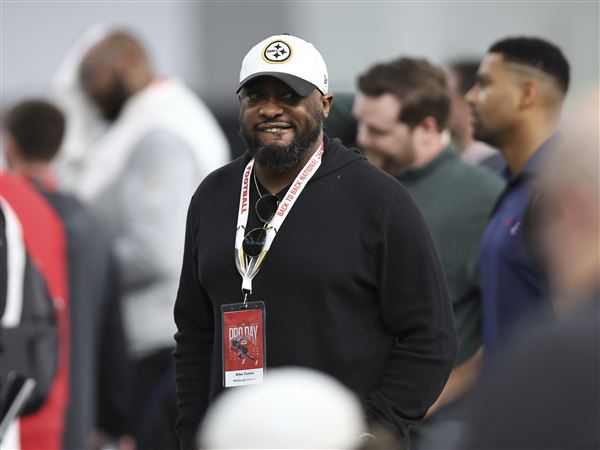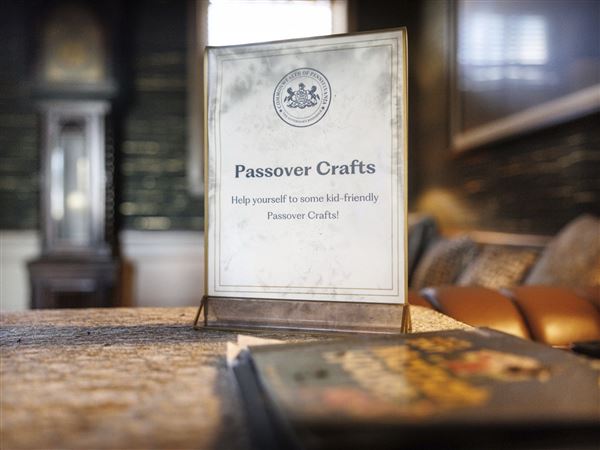State Sen. Mike Stack first heard the street chatter last week -- that the proposed merger of Pittsburgh's Highmark Inc. and Philadelphia's Independence Blue Cross was in peril. Even so, he was baffled by yesterday's announcement that the two health insurance titans had pre-emptively withdrawn their merger applications, saying they were unwilling to give up either of their well-known "Blue Cross" or "Blue Shield" trademarks as a condition of the merger.
"They had spent a ton of financial and political capital," said Mr. Stack, D-Philadelphia, minority chairman of the Senate Banking and Insurance Committee. Even if the two insurers thought the merger was in jeopardy, he said, he was of the mind that they might "take a little bit of time to regroup, or amend the application.
"Going this distance, [and] dropping out at the last minute -- surprising."
The distance they've traveled is best measured in months and dollars. The merger was first proposed in March 2007, and that announcement came after years of off-and-on merger discussions. Combined, the companies spent millions upon millions preparing and planning for the merger, hiring experts to testify about the merger, lobbying politicians and reimbursing the state $3.7 million for two studies performed at the request of the state Department of Insurance.
The head of the Insurance Department, Commissioner Joel Ario, had made it clear in recent weeks that in order for the merger to get clearance from the department, Highmark and IBC would have to relinquish one of their Blues marks. Such a forfeiture would theoretically open the door for another insurer -- possibly Harrisburg-based Capital BlueCross, an opponent of the merger from the start -- to use the trademark statewide and compete with the newly merged Highmark-IBC.
But both Highmark and IBC have said for months that their banners were non-negotiable, and the option of giving them up to alleviate anti-trust concerns was no option at all â€" it was a "poison pill."
"We have spent more than 70 years developing our brands' value in our markets, and they are an integral part of our corporate identities and reputation," said Dr. Kenneth Melani, Highmark CEO, and IBC president Joseph Frick in a joint news release.
The companies' boards decided to submit their withdrawal notices yesterday, and then began notifying their thousands of employees of the news via e-mail and Web casts.
"While we believe that the combination as originally proposed would have been of great benefit to all of our stakeholders, we concluded that giving up one of our brands would preclude the new company from delivering to our customers, communities, and the Commonwealth the full results we had projected. This is genuinely disappointing," the statement said.
Mr. Ario was less than disappointed: "We welcome the applicants' decision to withdraw their proposed consolidation. We were prepared to issue a disapproval order on Jan. 27, but this withdrawal smooths the process and allows all parties to focus on the challenges we all face in addressing the larger health care crisis."
Mr. Ario is an appointee of Democratic Gov. Ed Rendell.
"I think the merger was well-meaning by two great companies who are great corporate citizens, but I think it would have reduced competition in Pennsylvania," Mr. Rendell said in an interview yesterday with The Philadelphia Inquirer.
The merger would have created one of the largest health insurers in the country. Highmark and IBC said the merger was needed in order for the two nonprofits to remain competitive with larger, for-profit national competitors, but foes said the merger would have reduced choices for customers and left hospital systems and doctors with little negotiating leverage.
While the main players, Highmark and IBC, lamented the occasion, citing the "well-documented advantages of the consolidation for our customers and our communities" -- the insurers said that the merger would have saved $1 billion in operational and pharmaceutical expenses over several years -- opponents of the merger were congratulatory yesterday.
"Joel Ario is the Troy Polamalu of insurance commissioners," said Center for American Progress fellow David Balto, referencing the Pittsburgh Steelers safety and his game-saving AFC Championship touchdown.
"This merger of Pennsylvania's two dominant health insurers would have created a stranglehold on the Pennsylvania health insurance market, reducing competition and hurting patients," said Dr. Joseph M. Heyman, board chair of the American Medical Association, a physicians trade group.
The joint Highmark-IBC statement made no mention of whether the change in the economic landscape between March 2007 and January 2009 made the merger less palatable, and Dr. Melani wasn't made available for comment yesterday. Some in Harrisburg said that the insurance companies' decision to commit harakiri rather than let Mr. Ario kill the plan was akin to quitting before being fired, but Mr. Balto said the withdrawal of the merger application was a strategic move.
"If the full decision had been issued, it [could] have led to future antitrust litigation. The companies were wise to throw in the towel quickly."
One Harrisburg official said the Blues' decision to withdraw proved that, despite their insistence that the merger had nothing to do with increasing market share, the opposite was true.
This shows that the "merger was about cornering the market, and if it wasn't about cornering the market, then they shouldn't have had a problem giving up the trademark," the official said.
In theory, the companies could file a new, altered merger application tomorrow, if they wanted to. But that would reboot the process -- two more years of hearings and vetting -- and as of yesterday afternoon there was no indication that either Highmark or IBC is interested in running up that hill once more.
First Published: January 22, 2009, 5:00 a.m.















